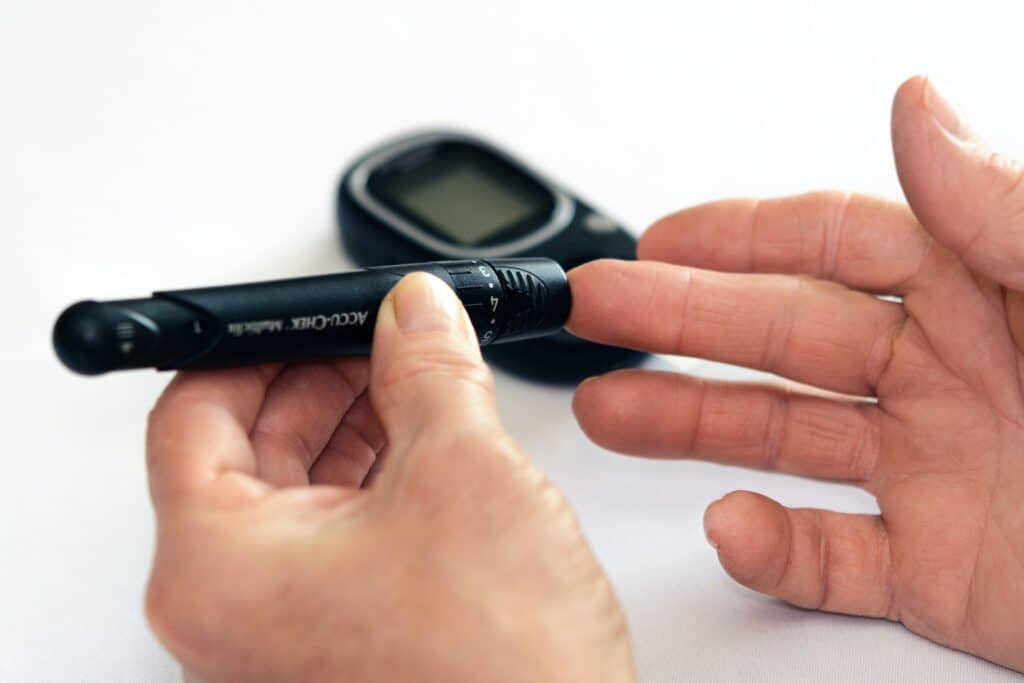10 Essential Issues Diabetics Must Face

As a diabetic, living with diabetes can be a challenge, but tracking certain health indicators can help manage the condition and prevent complications. As a person with diabetes, it’s essential to monitor the following 10 health indicators to maintain optimal health.
Blood sugar levels
Regular monitoring of blood sugar levels is crucial for managing diabetes and avoiding complications. Blood sugar levels can be checked with a glucometer, and it’s recommended to check them several times a day. Keeping track of blood sugar levels can help identify patterns and inform treatment decisions, such as adjusting medication or making changes to diet and physical activity.
Carbohydrates intake
Tracking carbohydrate intake for diabetics is important for regulating blood sugar levels and maintaining a balanced diet. Counting carbohydrates can help estimate the amount of insulin needed and prevent dangerous blood sugar swings. Keeping a food diary can help track carbohydrate intake and identify any dietary patterns that may need to be adjusted.
Physical activity
Regular physical activity is important for managing blood sugar levels, improving cardiovascular health, and reducing the risk of complications. Keeping track of physical activity levels helps manage blood sugar levels and promotes overall health. It’s recommended to aim for at least 30 minutes of moderate-intensity physical activity, such as brisk walking, most days of the week.
Medication usage
Taking medications as prescribed and regularly monitoring blood sugar levels is important to avoid dangerous lows and highs. Keeping track of medication usage and its effects on blood sugar levels can help identify any issues and inform treatment decisions. It’s important to communicate with your healthcare provider about any concerns or changes in medication usage.
Weight
Monitoring weight and changes in body composition for diabetics can help identify potential health issues and inform treatment decisions. Excess weight can increase the risk of complications, and weight loss can help improve blood sugar control. Regularly weighing yourself and tracking any changes can help identify any trends and inform treatment decisions.
Blood pressure
High blood pressure is a common complication of diabetes, and regularly monitoring blood pressure levels can help prevent and manage it. Blood pressure should be checked at least once a year and more frequently if it’s high. Keeping track of blood pressure levels can help identify trends and inform treatment decisions, such as adjusting medication or making lifestyle changes.
Foot and skin health
Diabetic neuropathy can lead to foot problems, and people with diabetes are at higher risk of skin infections. Regular monitoring of foot and skin health can help prevent and treat these issues. It’s important to inspect your feet daily, keep them clean and moisturized, and wear comfortable shoes. Any cuts, blisters, or changes in skin color should be reported to your healthcare provider.
Sleep patterns
Sleep patterns and quality can affect blood sugar levels and overall health. Keeping track of sleep patterns can help identify and address any issues. Aiming for 7-9 hours of quality sleep each night and establishing a consistent sleep routine can help improve sleep patterns and overall health.
Stress levels
Stress can have a significant impact on blood sugar levels and overall health. Monitoring stress levels can help manage its effects. Practicing stress-management techniques, such as deep breathing, meditation, or exercise, can help reduce stress levels and improve overall health.
A1C levels
A1C is a blood test that measures average blood sugar levels over a 2-3 month period. Regular A1C testing can provide important information on long-term blood sugar control and help inform treatment decisions. Aiming for an A1C level of 7% or lower is recommended for most people with diabetes, but the target may be different for each individual.
In conclusion, tracking these 10 health indicators is essential for people with diabetes to manage their condition and prevent complications. Regular monitoring of blood sugar levels, carbohydrate intake, physical activity, medication usage, weight, blood pressure, foot and skin health, sleep patterns, stress levels, and A1C levels can help identify trends and inform treatment decisions. By regularly tracking these indicators, people with diabetes can take an active role in managing their health and improving their overall quality of life.
A great resource for the latest information on diabetes, medication, diet, and more, visit the American Diabetes Association.
Please note this DailyWebTalk blog is for informational purposes only.
